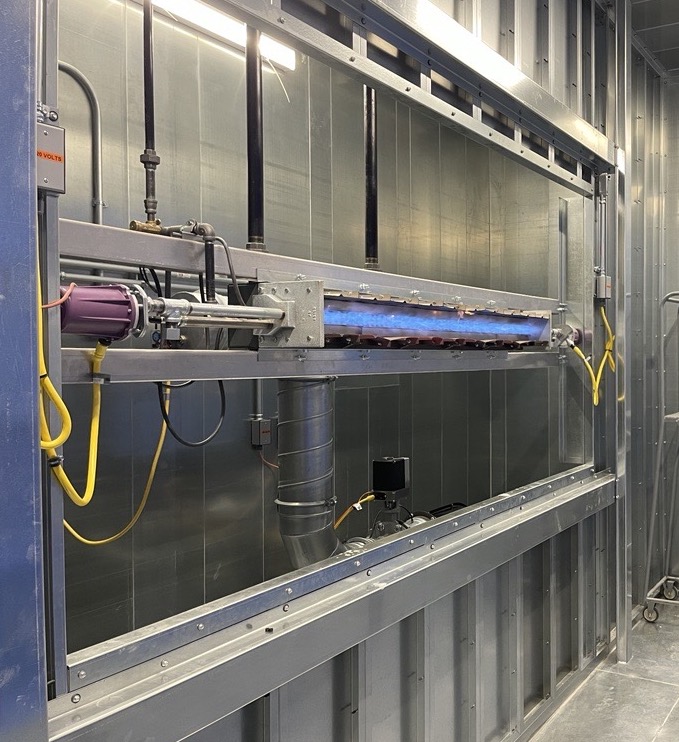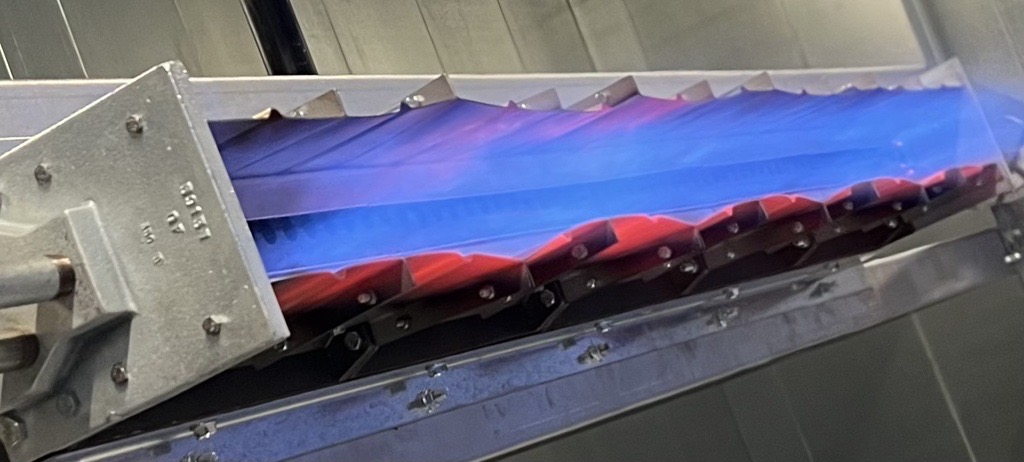Reducing Emissions with Complete Low NOx Burner Packages
 Sustainability and the reduction of environmental pollution is among the foremost concerns for businesses in the manufacturing and industrial sectors. NOx emissions (nitrogen oxides) stand out among harmful pollutants due to their significant impact on air quality and human health. NOx emissions contribute to the formation of smog and acid rain, and they play a role in the depletion of the ozone layer, so reducing NOx emissions is a priority. One effective strategy for achieving this goal is through the use of low NOx combustion packages.
Sustainability and the reduction of environmental pollution is among the foremost concerns for businesses in the manufacturing and industrial sectors. NOx emissions (nitrogen oxides) stand out among harmful pollutants due to their significant impact on air quality and human health. NOx emissions contribute to the formation of smog and acid rain, and they play a role in the depletion of the ozone layer, so reducing NOx emissions is a priority. One effective strategy for achieving this goal is through the use of low NOx combustion packages.
Importance of Reducing NOx Emissions
NOx gasses, primarily nitrogen dioxide (NO2) and nitric oxide (NO), are produced during combustion processes in vehicles, power plants, and industrial facilities. Reducing NOx emissions can help promote cleaner air, healthier communities, and a lower incidence of pollution-related health issues. It also aligns with global efforts to reduce the environmental footprint of industrial and energy production activities.
Challenges of Finding NOx Emissions Solutions
The need to mitigate NOx emissions is a complicated problem for industrial facilities. Finding effective solutions can present significant challenges due to the complexity and cost of NOx reduction technologies. Implementing advanced mitigation technologies can require substantial capital investment and ongoing maintenance. Additionally, industries must balance the reduction of NOx emissions while maintaining productivity and profitability. However, the need for compliance with stringent environmental regulations and avoiding potential operational inefficiencies make this issue an unavoidable concern for facility managers.

Low NOx Packages Offer a Solution
Complete low NOx packages are comprehensive systems designed to significantly reduce nitrogen oxide emissions in industrial heating processes. Packaged solutions integrate essential components with low NOX burners to provide a complete solution. Low NOx packages ensure that emissions are reduced to meet or exceed regulatory standards while maintaining productive and efficient operations. These packages are customized to the specific needs of the facility, offering a turnkey solution for compliance and optimal efficiency.
Regulatory Standards for NOx Emissions
Stringent regulatory standards for NOx emissions are established and enforced by environmental agencies worldwide. These standards vary by region and industry but generally aim to limit the amount of NOx that can be emitted into the atmosphere.
Concerning industrial boilers and process heaters, the EPA sets NOx emission standards through the National Emission Standards for Hazardous Air Pollutants (NESHAP) and the New Source Performance Standards (NSPS). These regulations require facilities to implement best available control technologies (BACT) to minimize NOx emissions.
Meeting Emission Reduction Goals and Requirements
Low NOx burners are engineered to operate with precise fuel/air ratio control, reducing the formation of NOx during combustion. By carefully controlling the combustion process, they achieve significant NOx reductions to meet regulatory standards without compromising performance and efficiency.
Engineered Combustion Systems Is Your Source for Complete Low NOx Burner Packages
Reducing NOx emissions is crucial for improving air quality and protecting public health. Complete low NOx packages offer an effective solution for achieving significant NOx reductions across various industries.
Complete low NOx packages from Engineered Combustion Systems provide customized, comprehensive solutions for industrial facilities. An initial assessment of current emissions levels can help determine the highest priority for implementing a low NOx solution. To meet emission reduction targets, it is essential to implement a sufficient number of complete low NOx combustion packages.
Contact us to discuss your project.
